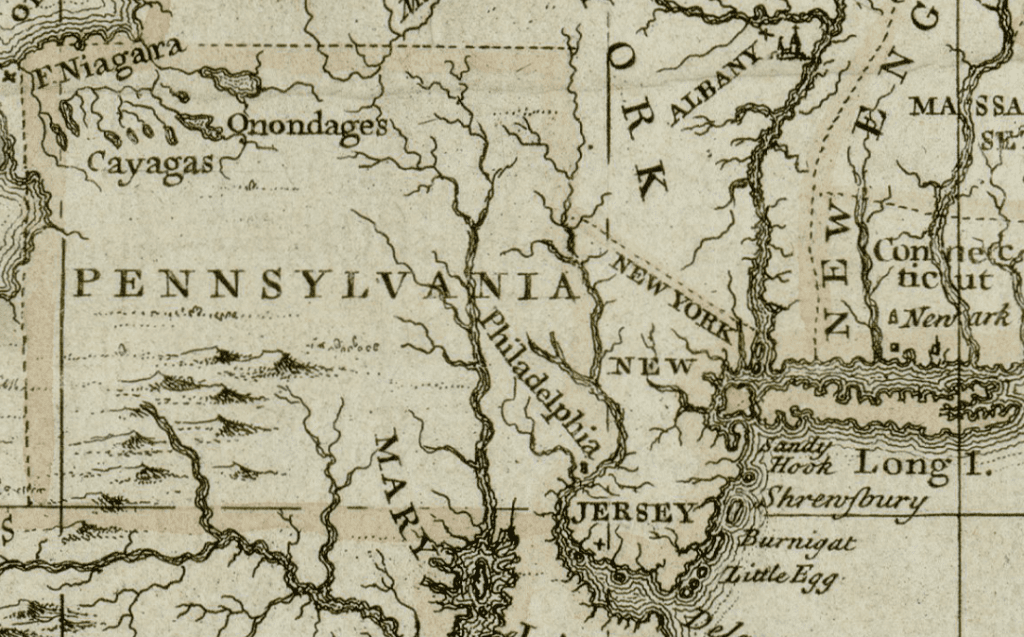I am currently exploring the role of empires in shaping religion and religions worldwide, and by no means only Christianity. I particularly want to look at the idea of movement, and the various ways that people (and their faiths) travel..
Spreading Faiths
If you look at a map of Christianity worldwide, you very soon appreciate the role of bygone empires. The great centers of Christianity owe their origins to successive Christian empires over the past half millennium: the Spanish, Portuguese, French, Belgian, and British. Within those empires, many people moved voluntarily, as settlers and colonists. Others were conquered and (at least initially) had new religious systems imposed upon them. Over time, those conquered peoples made the religion their own, but that is a separate story. Put this all together, and this is the story of how an overwhelmingly Europe-centered religion (in 1500) became a vast transcontinental enterprise by 2000.
So much is obvious, but this is not just a case of “Country X conquers a land and brings in its religion.” You could actually compile a lengthy list of countries ruled by European Christian powers where Christianity made next to no impact, and survives at best as a fossil. Think of French Algeria, which was not even an imperial possession, but was instead deemed an integrated part of the French metropolitan homeland. Yet today, the country is almost entirely Muslim. In other instances, the kinds of religion that empires brought in were exactly what those ruling imperial powers neither wanted nor favored. It’s a complicated story, and one to which I shall return.
We should think through that idea of movement, and what it implied for faith and faiths. Of their nature, empires needed excellent communications, whether by road and sail, or steamship, aircraft, and truck. Only thus could the imperial court or capital ensure firm authority over distant lands, while maintaining the ability to send military reinforcements. Through shrinking travel times and bringing distant parts of the globe together, empires made the world contract. Naturally, that was wonderful news for missionaries seeking to preach a faith in every corner of the world. But it also fundamentally changed the lot of dissidents, malcontents and rebels within homelands.
How The Sects Scattered
In the English-ruled world, for instance – the core of the later British Empire – the established religion from the 1530s onward was firmly Anglican and Protestant, with no tolerance for dissidents or dissenters, either Catholic or Protestant. Prior to the seventeenth century, dissidents had little option but to accept the official regime, with whatever qualms, or to risk life and property through rebellion. Matters changed when dissidents could be exported to colonial possessions, where they could provide invaluable aid to the imperial project of expanding settlement.
I have described the extraordinary climate crisis of the years around 1680, which resulted in rebellions, persecutions, and conspiracies across much of Europe. Unlike in earlier eras, this wave of crisis resulted in mass emigrations to imperial territories – by British and Irish Quakers and Baptists to Pennsylvania, where they were soon joined by German Protestant sectarians.
Persecutions of Protestants in France soon led the Huguenots of that country to seek their own refuges in overseas empires, whether in British America or Dutch South Africa. In each case, those colonial settlements became a seedbed for later growth, which was especially concentrated among faith groups who at home would have been at best tolerated dissidents, at worst persecuted victims. Colonial Pennsylvania boomed, but in very few cases were the people leading the expansion across the state and further west faithful Anglicans. When America revolted in the 1770s, British observers described the movement as a “Presbyterian Rebellion.” Anglicanism barely survived in the new republic, following a profound makeover that created the Episcopal Church.
Deeply religious people who traveled far to escape persecution also understood their fate through inevitable scriptural resources. The Huguenots who went to Africa became crucial to the development of the Afrikaaner/Boer tradition, with its strongly Old Testament idea of true believers as God’s holy people, pledged in a divine covenant. All those ideas were well represented among North American Presbyterians likewise. Huguenots brought with them a sense of martyrology, persecution, and the need for communal self-defense. That tradition shaped the politics of white South Africa right up to the 1990s and beyond. Although the Afrikaans language is basically Dutch in origin, most Afrikaaners have some Huguenot blood. Many of the families who dominated Afrikaaner society until recent times bear French names.
Australia offers a somewhat similar process of exporting dissidents. Although the British Empire did not deliberately decide to slim its Catholic population by sending them half wy around rthe world, that is rather what occurred through the system of penal transportation. The new Australia that emerged in the later nineteenth century had a powerful Irish and Catholic presence, which today represents around a quarter of the whole. The British Empire, needless to say, did not intend to create a new Catholic state in the Southern Hemisphere, but empires are often struck by the law of unintended consequences.
You’ve heard of “Build it and they will come?” Empires operate on the basis of “Make it possible to go, and go they will.”
Crypto-Jews
The number of possible examples here is close to limitless, but here are a couple of non-Christian stories I think are powerful. When the Spanish kings united the peninsular, they became increasingly intolerant of the large Jewish population, and forced them to convert or flee. A great many Jews accepted notional conversion, but maintained their faith covertly. From the sixteenth century, many of those crypto-Jews took advantage of the new opportunities opened by a global empire, and migrated in substantial numbers to many parts of South and Central America, including Mexico, and New Mexico. Right up to the end of the South American Inquisition in the 1820s, investigators repeatedly found traces of that global-but-covert Jewish presence, in the forms of secret prayers and fragments of liturgy, of distinctive dietary customs and seasonal rituals.
Mapping Hindus
To take another example, empires need labor, and more particularly labor that is located in sites of high demand. Here, I will only very briefly mention the role of slavery in creating the global African diaspora that is so central to the modern Christian story. (I’ll come back to this, of course). But other forms of labor were also employed, including indentured labor that often looked quite a lot like slavery. That involved both Chinese and Indian workers, who found themselves in odd and unexpected corners of the British Empire, where they brought their religious ways. The British did not intend to make Hinduism a global faith, but that is what they did.
Through such historic population movements (by both the British and the Dutch), Hindus today represent a quarter of the populations of Trinidad, Guyana, and Suriname, 40 percent of Fiji’s population, half of Mauritius. When you walk the streets of the city of Singapore – a wholly new British creation of the nineteenth century – you see so many Indian and Chinese places of worship. Other peoples from the Indian subcontinent, Sikhs and Muslims, likewise found themselves in quite new territories, in Cape Town or Vancouver.
Post-imperial Britain itself attracted Hindus from the 1950s onward, as workers or small entrepreneurs. Today, the country is home to around a million Hindus, some of whom are very wealthy, and powerful. One of them, Rishi Sunak, stands high on the list of Conservative Party candidates to replace Boris Johnson as Prime Minister (which may or may not happen, of course). Sunak’s personal fortune is probably north of $250 million, and his (Hindu) in-laws are billionaires. When he took his oath in the House of Commons, he did it on the Bhagavad Gita.
A Muslim Experience
One other “unintended” instance I like, in that it shows not just how faiths travel, but also how those faiths are transformed. The Dutch had a mighty and very populous empire in the East Indies, in what is today modern Indonesia. That experience forms the subject of the thinly fictionalized Max Havelaar (1860), by Eduard Douwes Dekker, which has a good claim to rank as the great European novel of empire: it is also VERY critical of Dutch rule. The 1978 film version is also impressive.
The religion in those parts was overwhelmingly Muslim but of a very tolerant and syncretistic kind, with many borrowings from Hinduism, and largely cut off from the wider Muslim world. That changed in the nineteenth century, as the modern and efficient Dutch navy sank the pirate fleets that had cursed the region for so long. Even better, the European empires made sea travel easier by bringing in cheap steamship travel, which made transoceanic travel a familiar and even humdrum reality. It now became relatively easy for the Muslims of the area to make the long-impossible pilgrimage to Mecca, and even to travel in the Muslim Middle East. If you read Conrad’s novel Lord Jim, you see how such pilgrimage had been normalized by the late nineteenth century. (See John Slight, The British Empire And The Hajj, 1865–1956 (Harvard University Press, 2015).
In the Middle East, those pilgrims discovered just how out of sync their own customs and practices were with the realities of modern Islam. This discovery began a fundamental reorientation of Indonesian Islam to a much stricter and more orthodox variety, and even to what today we would call political Islamism. Today, Indonesia is by far the world’s largest Muslim nation, with a reported 230 million believers. Needless to say, that leap to orthodox Islam is not what the Dutch empire had in mind when it began cleaning up the piracy problem.
Through making travel and transport vastly easier, by creating great trading cities and merchant communities, empires make it easy for religions to spread to whole new territories, and that is true of both old faiths and new. Just read the Book of Acts.
For the American context, I draw attention to Katherine Carté, Religion and the American Revolution: An Imperial History (University of North Carolina Press, 2021). She is admirably clear and wide-ranging on what the revolution meant for “Imperial Protestantism.”














